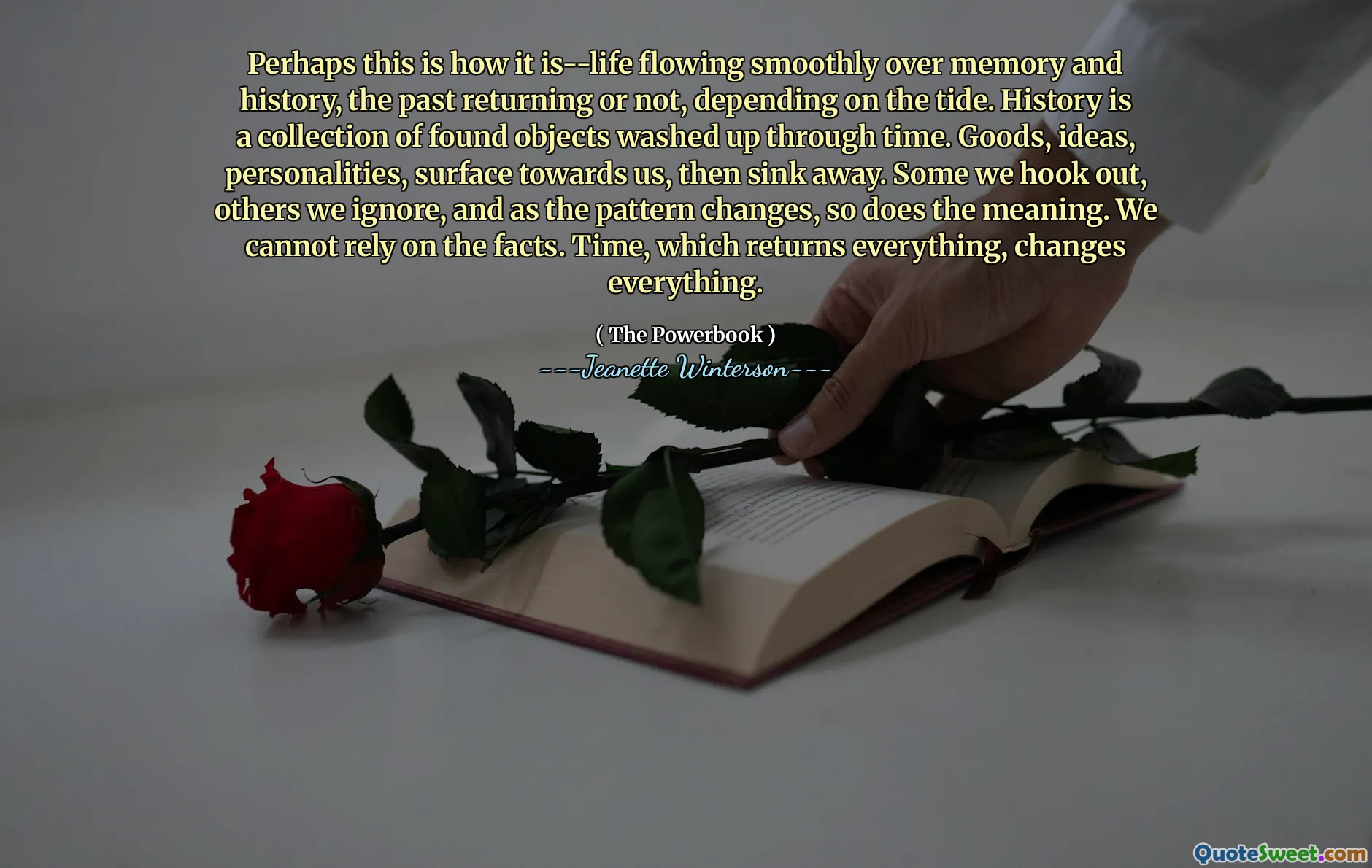
Perhaps this is how it is--life flowing smoothly over memory and history, the past returning or not, depending on the tide. History is a collection of found objects washed up through time. Goods, ideas, personalities, surface towards us, then sink away. Some we hook out, others we ignore, and as the pattern changes, so does the meaning. We cannot rely on the facts. Time, which returns everything, changes everything.
In Jeanette Winterson's "The Powerbook", the nature of life is depicted as an ebb and flow, akin to tides that dictate the presence of memories and history. The author's reflection suggests that our past can resurface or remain submerged, influenced by the relentless passage of time. This analogy highlights how history consists of remnants that emerge and fade, much like objects washed ashore, which we selectively engage with or dismiss based on their relevance to our current lives.
The passage emphasizes the impermanence of facts and the fluidity of meaning that arises from our interactions with history. As time progresses, it reshapes our understanding and connection to past events, indicating that what we perceive as truth may be less stable than it seems. The act of remembering is not just about retrieval but rather about how the context of our lives alters its significance, suggesting that every moment is an opportunity for reinterpretation.







